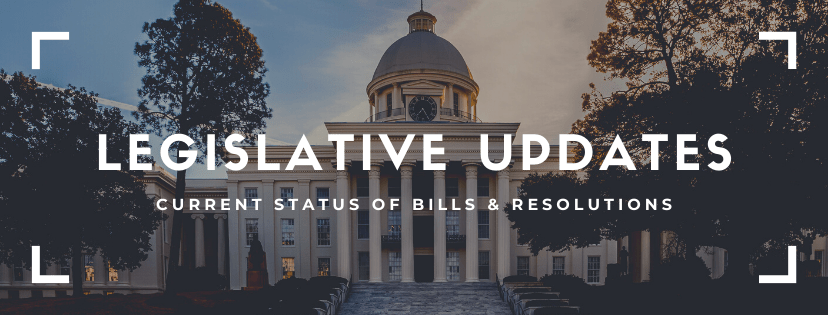Tag: legislation
-

2021 Legislative Session
Scope of Practice ATHLETIC TRAINERS: This bill (SB73) provides for the licensing and regulation of athletic trainers relationship with a supervising physician, creates a joint committee of the two state boards, and expands the ability of athletic trainers to treat injuries sustained by physically active individuals. The Association worked with the ATs prior to the…
-

Association Secures Significant Changes to Midwife Board Rule
The Medical Association and a coalition of health organizations this week convinced a legislative committee with oversight of state board regulations to make changes to a dangerous proposed regulation by the newly-formed Alabama State Board of Midwifery. The Midwifery Board was established by law in 2017 to license non-nurse midwives. The proposed regulation – if…